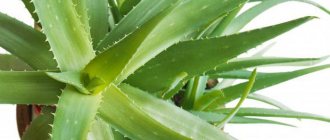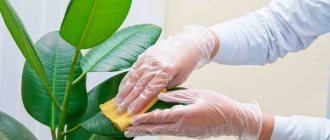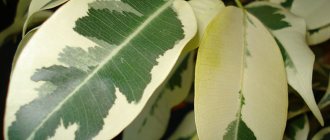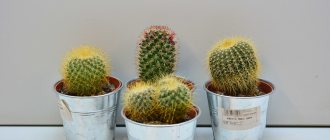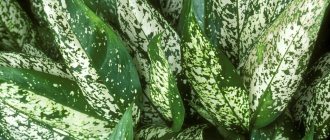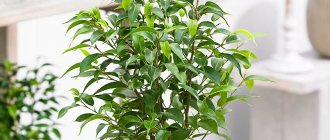The magical properties of flowers have always interested people. This is not surprising - plants were used for treatment and poisoning, inducing or removing damage, and drove away evil forces from people and homes. It is all the more important to know what effect a flower standing on the windowsill in the house has on the owners. For example, about the Benjamin ficus, signs and superstitions are good among all peoples, except those living in the post-Soviet space. This is probably due to its close relative, Rubber-bearing. After the revolution, they began to consider it a symbol of philistinism, and they tried in every possible way to spoil the flower’s reputation.
Is it possible to keep ficus benjamina at home?
This plant has various properties. The leaves of the flower contain certain substances that help purify and disinfect the air.
In many cultures, ficus is considered a harbinger of wisdom and happiness. That is why the leaves of this flower are often used as a raw material for making incense.
Ficus helps restore energy, overcome stress, and create harmony in everything. This plant does not contain any toxic substances, therefore, you can safely keep it in your home without fear for people and animals. The only thing worth remembering is that this plant is not recommended for allergy sufferers.
The peak of the Lyrid starfall and more: astrologers named 4 “days of power” in April
Who lived the best under the USSR? What did Soviet residents envy when they arrived in Georgia?
Total dictation 2021 can be written in English
Flowers can only be given to good people and in a good mood. This will cause him to bring good energy.
Characteristics of different types of plants
In apartments and office spaces, rubber ficus and ficus benjamina are often used. And each of them has beneficial and harmful properties.
Rubber-bearing
The rubber-bearing ficus is unpretentious in maintenance , therefore it decorates not only homes, but also public spaces (clinics, hotels, educational and entertainment centers, etc.). Most often it is placed in the hall (where there is a lot of free space), because with intensive growth the flower reaches a height of about 1.5-2 m, and sometimes more.
The positive properties of this type include the ability to purify and disinfect indoor air. On the negative side, there is a high content of rubber in the plant, which can cause exacerbations of diseases in particularly sensitive people with asthma or allergies.
Therefore, the rubber version is more suitable for office premises.
Benjamin
Ficus benjamina helps create a cozy home atmosphere , and the plant is easy to care for. Its beneficial properties include:
- air purification;
- safety for children and adults;
- creating a favorable, harmonious atmosphere.
There is only one negative property - the risk of developing allergic reactions.
Ficus is an unpretentious indoor plant that often reaches a height of 1.5 meters or more. The flower fits perfectly into the surrounding space, creating harmony and comfort in the room. It saturates the air with oxygen and cleanses it of toxic impurities and pathogenic bacteria.
But ficus is contraindicated for asthmatics, allergy sufferers and families with small children and pets , since there is a risk of accidental poisoning with subsequent restoration of the gastric mucosa or skin (in case of chemical burns).
Magic properties
Ficus Benjamin brings positive changes to several specific areas of life, namely:
- attracts good luck;
- improves health;
- attracts money;
- improves relationships between household members.
This is a fairly unpretentious plant that can attract happiness, luck and prosperity in all areas.
Description
Ficus benjamina has erect shoots, a round stem part and very distinctive foliage. The leaves can be glossy, smooth, thin-leathery, oblong-oval and have a pointed apex. The average leaf length varies from 6 to 13 centimeters, the width can range from 2 to 6 centimeters.
The entire leaves are arranged alternately and are formed in the same plane. The pinnate-loop type of venation is characteristic; the central vein is weakly expressed and branches into eight or more lateral veins. The length of the petiole rarely exceeds a couple of centimeters. The color of the bark is gray with slight inclusions of brown. The crown is wide, the type of branches is drooping.
Negative signs
In addition to the positive effects of Ficus Benjamin, there are some negative signs associated with this plant. These include:
- makes home owners aggressive and nervous;
- makes men irritable;
- contributes to scandals;
- negatively affects personal life and scares off men.
If a single woman has a ficus in her house, then their relationship very rarely reaches marriage.
Graphics in detail: fashionable bold arrows for the spring-summer 2021 season
More than just turning off the lights: how you can support the Earth Hour project
Bookmakers predicted what place Manizha will take at Eurovision 2021
Plant care
Benjamin's ficuses are unpretentious and can easily withstand insufficient professional care, which makes it possible to recommend their cultivation even to novice gardeners, as well as people with limited free time.
Microclimate
The permanent place for the plant should be well lit. A good option is a window sill. In summer, Ficus Benjamin can be placed on a balcony or loggia, but the plant should be protected from precipitation and wind.
For Ficus Benjamin, direct sunlight poses a significant danger. Therefore, it is important to shade the plant. In winter, the ficus will have to be illuminated with fluorescent lamps. The temperature should not fall below 15 degrees Celsius. The plant should be protected from sudden temperature fluctuations.
Too low a humidity level in the room can harm the ficus. To ensure sufficient humidity, it is necessary to frequently spray and rinse the plant with warm and clean water.
Watering and fertilizing
Watering is carried out after the top layer has dried to a depth of three centimeters. Ficus plants tolerate slight drying out of the soil more easily than flooding the soil. Watering should ensure uniform distribution of moisture throughout the earthen clod. Excess moisture should not accumulate in the tray under the flower pot. For irrigation, it is recommended to use settled water at room temperature.
The first couple of months after planting or replanting the plant does not need to be fed. Next, special fertilizers are used for feeding, which are sold in flower shops. Ficus Benjamin is fertilized in spring and summer. Fertilizers are applied twice a week. Organic matter should be alternated with mineral fertilizers.
At the stage of active growth and development of the plant, fertilizers that contain a significant amount of nitrogen should be used. Fertilizer must be added to the water when watering. In winter, the plant enters the resting stage and ceases to need feeding.
Transplanting a plant
Replanting Ficus Benjamin is required in the following cases:
- complete intertwining of a clod of earth with the root system of the plant;
- soil drying out too quickly after watering;
- exposing the root system of the plant and insufficient size of the flower pot.
Two centimeters of drainage and two centimeters of high-quality planting soil substrate should be placed at the bottom of the new pot, then the plant is transferred from the old container to the new one using the transfer method. Next, the entire volume of the pot with the plant should be filled with soil.
For ficus, the transplantation process is stressful. Immediately after replanting, a slowdown in development or loss of foliage is observed. During this period, it is recommended to partially replace watering with spraying.
Plant pruning
Proper pruning of the ficus not only helps the plant acquire the desired shape, but also allows it to rejuvenate. Forming the crown consists of shortening and pruning the branches, as well as directing them in the desired direction through the use of tensioners. In order to form a more lush and beautiful crown of the plant, pruning of shoots should be carried out in the spring. Activation of the growth process after winter rest is the most optimal period for pruning.
After reading the corresponding article on our resource, you can learn about the secrets of forming a beautiful and non-standard crown in a ficus.
How to properly place ficus in the house?
In order for the plant to bring maximum benefit, you need to choose the optimal room for it.
If Ficus Benjamin is quite large, then it is not recommended to keep it in the bedroom, as it has a fairly active aura. Small bushes of the plant, on the contrary, will only bring benefits. They will be useful for those who suffer from sleep disorders, as they help make sleep more sound and fulfilling.
To achieve harmony in the house, it is worth placing Ficus Benjamin in the living room. Then the space will be filled with positive energy. Conflicts and disagreements between household members will disappear.
To improve the financial situation of the family, it is worth placing the ficus in the kitchen. The owners will spend money wisely.
It is useful to place the plant in the office as it helps improve productivity. With the help of this small tree you can eliminate any conflicts and disagreements.
Ficus benefits and harm for humans
Despite the wide distribution of ficus around the world, this plant is a tropical species and the homeland of shrubs and trees are Asian countries, the coast of the Pacific and Indian Oceans, and the Mediterranean. There, nourished by the tropical humid climate, ficus trees grow to enormous sizes.
Scientists have identified a large number of different species of this plant. Some of them remain wild even centuries later, others have long been used by humans and grow in home gardens and greenhouses. The most common are ficus benjamina, rubber, dwarf, bengal. It is these species that are the most unpretentious to grow and useful for humans.
How is ficus useful?
What are the benefits of ficus photo
Plant connoisseurs know that ficus, whose beneficial properties are based on the unique composition of its juice, is better than other trees and shrubs in purifying the surrounding air from harmful benzene and phenol. They are not simply retained in the leaves, as in a natural filter, but are converted to sugars and amino acids. As a result, the air in the room where the ficus grows is saturated with useful substances.
Plant diseases
Houseplants can often be affected by various microorganisms that cause diseases. Ficus benjamina is no exception and can be affected by diseases as a result of:
- inappropriate lighting for the plant;
- violations of temperature conditions and humidity indicators during cultivation;
- violation of the irrigation regime.
Plants weakened by improper care are often affected by infectious and fungal diseases, among which the following are especially common:
- powdery mildew;
- cercospora;
- anthracnose;
- mobile or black fungus;
- root rot.
In order to treat and prevent diseases, treatments are carried out with special fungicides.
Ficus benjamina can be attacked by a variety of insect pests. Among them:
- mealybug;
- scale insect;
- flower aphids;
- spider mites.
Treatment should be started as early as possible. It is allowed to use both folk remedies against plant parasites and highly specialized chemicals.
Where is it better to place a tree according to signs and superstitions?
Ficus benjamina is a versatile plant. In order for it to have a beneficial effect on the people living in the house, it can be placed in any room.
It is very good to place a tree in the bedroom. Here it will contribute to proper rest and restoration of the body after a hard day. In addition, you can place a ficus tree near the newlyweds’ bed if they want to have a baby in the near future.
A great place for this flower is the living room . Here he can create a pleasant, friendly atmosphere. Then communication with guests, friends, relatives and household members will bring only joy and satisfaction.
It is useful to place a ficus in the office , because it helps a person make wise decisions. Near this tree, thoughts are always clear, and decisions made are justified and balanced. In addition, ficus brings calm and balance, which is often extremely necessary in work.
Ficus is appropriate even in the kitchen. It has been noticed that this is where the plant best helps to generate additional income and attract money to the house. In addition, he perfectly helps the housewife in her difficult work.
In any room, it is better to place ficus on south-eastern windows. The northwest side will also work. This is where the influence of the plant will be especially strong.
What does the medicinal juice of the plant help with?
Ficus juice is also widely used to treat the following diseases :
Dysentery and intestinal disorders . During the initial three days of the disease, it is recommended to take two tablespoons every two hours, and then you should drink it in the same volume before meals three times a day.
Haemorrhoids . To get rid of this disease, soak a cotton swab in the juice and place it in the anus overnight.
Mastopathy . For such an ailment, the juice should be drunk for seven days , one teaspoon before eating, once a day. After a two-week break, the course of treatment can be repeated
Fibroids - juice should be consumed according to the method described above
Neurasthenia and depression . In these cases, three drops of fresh ficus juice are dripped onto a piece of refined sugar and slowly dissolved
Penetrating through the mucous membrane of the oral cavity, this juice has an invigorating effect on the body . After the procedure described, you should refrain from taking any liquid for fifteen minutes.
Toothache . The juice is diluted in fifty milliliters of 70% alcohol and infused for 24 hours. A couple of drops of the resulting liquid are placed in the open cavity of the tooth.
Hematoma . as a compress on the desired area overnight.
Tincture with ficus juice works magic!
You can prepare a healing tincture . For this:
| Preparing the tincture | |
| Step 1 | Two or three leaves of this plant should be placed in a glass container and poured with one glass of vodka |
| Step 2 | The container should be placed in a cool place for two weeks. |
| Step 3 | Add a tablespoon of honey and the yolk of one chicken egg |
| Step 4 | It is recommended to keep the prepared tincture in the refrigerator for two weeks. |
It is used for rubbing and lotions for radiculitis, arthritis, osteochondrosis, boils, wen and warts. For bronchitis and tracheitis, a honey compress made from ficus leaves is excellent.
Only a properly prepared tincture will help in treatment
Which varieties emit poison?
There are many varieties of ficus that are relatively safe for children and animals. Toxic species are the following:
- Ficus Benjamina - This plant is one of the strongest types of allergens, along with dust and mites contained in it, as well as pet hair and dander.
- Melanie . This is a plant that produces toxic fruits.
- Variegated ficus . Its fruits are also very poisonous.
- Ficus rubbery . Dangerous for allergy sufferers.
If the owner of these types of plants has a history of any allergic manifestations, it is necessary to have antihistamines on hand - Suprastin, Zodak.
If the people living in the apartment do not have allergic diseases, then they can afford to keep this plant. Ficus has many medicinal properties, fights bronchitis, rheumatic diseases, and tumors.

